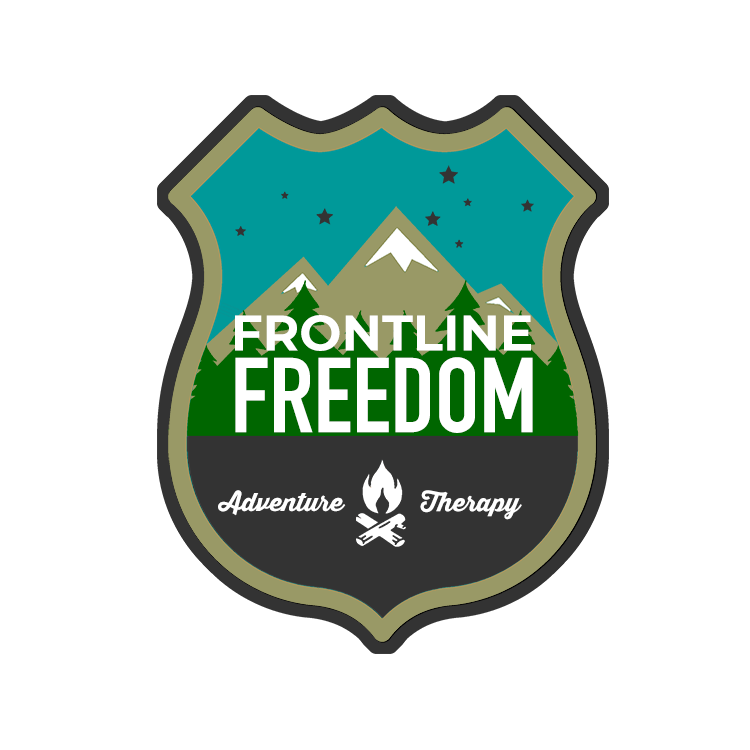Articles

On Goal Setting
Most people think of goal setting as a way to make themselves feel better about the past through achievements, but it is so much more. When we set goals, we acknowledge we are not where we want to be in life. That is a hard pill to swallow. It takes guts to say, “I want more.” And it takes an immense amount of courage to take the steps necessary to reach those goals.
When we set goals, we acknowledge that we are capable of so much more than we currently are. We are admitting that we have the potential to grow and improve. This is a mighty mindset to have. When we believe in our own potential, anything becomes possible.
Reaching our goals requires us to step outside of our comfort zones. It means taking risks and facing challenges head-on. It means embracing the unknown and trusting that we will figure it out along the way.
The process of goal setting is not about making ourselves feel good at the moment. It’s about committing to ourselves to become the best version of ourselves that we can be. It’s about taking our dreams and turning them into reality.
Goal setting can be used to create a better future for ourselves and our loved ones. It can also help us find direction in life when we feel lost or stuck.
Are we lost, or are we stuck?
Being stuck implies that we have a defeatist attitude. It caters to the notion that I cannot improve my situation no matter what I do. Immanuel Kant would say that this results from our cognitive faculties being in a rut.
Kant believed that we can break out of these ruts by using our reason. Reason, for Kant, is the faculty that allows us to think for ourselves. It is the ability to question why we believe what we do and think critically about our world.
When we set goals, we use our reason to create a plan for ourselves. We are taking control of our lives and charting a course for success. This empowering process can help us achieve anything we set our minds to.
We are not stuck. Stuck is infinite. We are lost.
Acknowledge it. Grow from it.
Being even 1 degree off from where we start equals thousands of miles of separation at the end. That is how we got here. Now, we need a little more guidance.
The first step is admitting that we don’t have all the answers. This can be a difficult thing to do, but it is essential if we want to grow and improve our lives. Once we admit that we don’t know everything, we open ourselves to new possibilities. We become willing to learn and experiment. We become open to change.
We evaluate the difference between where we are and where we want to be. That is the gap where genuine improvement lies. Do you want to be an expert? Why haven’t you taken the class, gotten the certification, or marketed yourself as such?
Lack of goals.
Goals aren’t the ‘shoot for the moon’ approach. Goals are rungs of a ladder. Each step closer to where you thought or wanted to be by this point in your life.
Goal setting is not about making ourselves feel good at the moment. It’s about committing to ourselves to become the best version of ourselves that we can be. It’s about taking our dreams and turning them into reality. When we set goals, we admit that we have the potential to grow and improve. This is a mighty mindset to have. Reaching our goals requires us to step outside of our comfort zones and embrace the unknown. The goal-setting process is not easy, but it is worth it!

Mentally Recharging
It’s easy to become bogged down by the routines of daily life. We all have the good and bad habits that we fall back on without even thinking about it. But sometimes, it’s essential to take a step back and mentally reset yourself. This can be done in several ways, but the most effective is often to change your environment. If you can get away from your normal surroundings and spend some time in a new place, you can open yourself up to new possibilities and see things in a different light. This can help you break out of any ruts you may have fallen into and start fresh.
In a recent survey, hundreds of high-performing upper management personnel were surveyed. The results were astounding. To stay mentally sharp, the high performers overwhelmingly chose activities that included an element of solitude.
Whether knowingly or not, the findings are consistent with zen philosophy. The goal of zen is to achieve a state of mind called “mushin,” which can be translated as “no mind.” This state is characterized by complete focus and concentration on the present moment. To achieve mushin, zen practitioners engage in activities that require complete focus and attention, such as meditation.
While the survey did not specifically ask about meditation, it’s clear that the respondents who reported the most significant mental productivity were those who had found a way to balance social and solitary activity in their lives.
Respondents reported participating in activities such as motorcycling, fly-fishing, and listening to music through headphones: no work e-mails, no phone calls, just themselves.
The key is to find an activity that allows you to focus entirely on the present moment without distractions. This could be anything from painting to hiking to playing a musical instrument. The important thing is that it’s something you enjoy and can do regularly.
Mentally disconnecting is often underrated. It can be so important to take some time for yourself, just step away from everything and relax. This can be especially beneficial if you’re feeling overwhelmed or stressed out.
It’s also important to remember that mentally disconnecting doesn’t have to be a solitary activity. You can spend time with friends or family or simply enjoy peace and quiet. Whatever you do, make sure to take some time for yourself every day. The point is to find a way to disconnect from the stressors of life.
There are a lot of benefits to mentally disconnecting. For one, it can help reduce stress levels. It can also give you some much-needed time to reflect on your life and figure out what’s important to you. Additionally, it can help boost your mood and improve your overall outlook on life.
Mentally recharging allows us to hit the reset button and start fresh. It’s an integral part of maintaining our mental health and well-being. Maintaining our mental health and well-being allows us to continue to be there for other people. Whether we are first responders, parents, friends, etc., we need to be able to maintain ourselves and guide others where we can.

On Evaluating Progress
In ancient Greek philosophy, Plato’s Allegory of the Cave is a story that describes people who are chained inside a cave and can only see shadows cast on the wall. The shadows represent what they perceive as reality. These people tell each other that these shadows are real things. They believe in them more than anything else. Those outside of the cave, who have seen reality with their own eyes, know better and try to convince those chained inside to come out into the light and see how wrong they are about what is true and what isn’t. But this doesn’t work because those inside don’t want to leave their comfortable place where they feel secure. After all, “they know” everything there is to know while believing nothing could be better than what they have.
The problem with this story is that it’s not just a story. It’s an allegory for the human condition. We are all like the people in the cave, perceiving shadows on the wall and believing them to be reality. And, just like the people in the cave, we don’t want to leave our comfort zone because we’re afraid of what we might find out.
What is real?
The only way to break out of this cycle is to challenge our beliefs and ideas about what is real and what isn’t. We need to be willing to question everything we think we know and be open to the possibility that we could be wrong. Only then can we start to see reality for what it is.
We can question what we think we know by examining our proclamations and asking ourselves if they stand up to scrutiny. If you think back to five years ago, there is a chance that the thoughts and beliefs you held then are no longer valid. You have progressed.
We see this routinely when we think back to our twenties or even teen years. We say things like, “I wish I would have known then what I know now.” We are not the same people we were then. We have a different perspective now.
We change as we experience more of life. Our perspectives change as we learn new information and grow in our understanding. This is progress.
It can be difficult to evaluate our progress because it’s not always easy to see how far we’ve come. We may not realize how much we’ve changed until we look back on our old beliefs and ideas and see how different they are from our current ones. But it’s important to try to do this to see just how much progress we’ve made and how much further we still have to go.
We have a habit as a species of evaluating ourselves from where we think we should be. When we think in this manner, we are thinking from the end backward. Memento Mori, which means “remember you will die” in Latin, is a way of thinking that can help us remember our mortality and appreciate the time we have been given.
It allows us to see that each day is a gift and not a right. It’s a reminder that our time is limited, and we need to make the most of it. It helps us focus on what’s important and not get caught up in things that don’t matter.
Most importantly, in the context of evaluating our progress, it eliminates us from thinking about how much further we have to go. While reading this, you could die from an aneurism where you think your endpoint should suddenly become irrelevant.
Instead, evaluate yourself on how far you have come. Not compared to anyone else. Not compared to where you think you should be. But, actual evidence is proof of the gap between where you started and where you are now.
This is progress. And, it’s the only thing that matters.
If you feel stuck or like you’re not making the progress you want to be, take a step back and look at how far you’ve come. You’ll be surprised by just how much progress you have made. And once you see it, you can use it as motivation to keep going.

On Favorite Days and Challenges
I’m sure many things made up your favorite day from the past week, but I’ll bet one of them was an activity that stuck out above the rest. Think about what activities come to mind when thinking back on a great time in the past week.
Your favorite activity from the past week was probably something that challenged you and made you feel good. Maybe you rode your bike for the first time in years or cooked a complicated recipe from scratch. Whatever it was, it gave you a sense of accomplishment and made you feel good about yourself. And that’s precisely what we need to do more to improve ourselves.
We need to be challenged.
Too often, we get stuck In the game of complacency. We sit around waiting for things to happen to us rather than actively pursuing the life we want to live. We become content with just getting by, and our days start to blur together into one big, indistinguishable mass. But if we’re going to live our best lives truly, we need to find ways to regularly push ourselves out of our comfort zones.
Of course, this doesn’t mean that we need to put ourselves in danger or do something that makes us unhappy. But it does mean that we should challenge ourselves intellectually, physically, and emotionally on a regular basis. By doing so, we keep ourselves sharp and prevent ourselves from becoming stagnant.
As Marcus Aurelius pointed out, “The object of life is not to be on the side of the majority but to escape finding oneself in the ranks of the insane.” In other words, it’s far better to challenge ourselves and fail than it is to play it safe and never truly experience life.
When was the last time you felt happy?
Ask yourself an honest question. When was the last time you felt happy?
Chances are, it was during some period of growth. The combination of humility and eagerness to learn allowed you to accomplish something great, and in the process, you found joy.
Humility is needed to acknowledge we are still a work in progress. Eagerness to learn is needed to improve upon our position continually. The key is not to dwell or obsess about becoming happy. Arthur Schopenhauer said it best:
“The two enemies of human happiness are pain and boredom.”
Focus on the process, not the result.
The problem with constantly seeking out new challenges is that we can become so focused on the outcome that we forget to enjoy the journey. We get so caught up in our destination that we forget to appreciate the view along the way. We become fixated on summiting the mountain instead of enjoying the climb.
It’s important to remember that life is a journey, not a destination. The goal is to enjoy the ride, not just arrive at the finish line. Unfortunately, this is easier said than done. Our natural tendency is to focus on what lies ahead, which can often lead to anxiety and stress.
It’s not about winning or losing.
In our culture, we tend to see life as a competition. We’re constantly comparing ourselves to others and striving to be the best. We keep score of our successes and failures, and we define ourselves by our victories and defeats.
But what if we stopped seeing life as a competition? What if we stopped trying to win or lose and just focused on enjoying the game? Would we be happier? Would we be less stressed? I think the answer is yes.
Growth is not a straight line. It’s full of zig-zags and starts and stops. But if we want to experience true happiness, we need to be okay with embracing the chaos.

On Motivation and Productivity
When it comes to getting things done, there seems to be a sweet spot for timing. You want to be productive, but you don’t want to overdo it and feel burned out. So what’s the right balance? How do you know when you’re in the zone?
Do feelings predicate action? We typically think that we are motivated when we FEEL like doing something. We feel like working out, so we are motivated to go to the gym. We feel like eating healthy and losing ten pounds. We feel like connecting with an old friend, so we call them.
What if the algorithm is wrong? What if doing predicates feelings?
In other words, take action first, and the motivation and feelings will follow. It’s the same reason we tell people struggling with depression to “fake it ’til you make it.” When we do things that make us happy, we USUALLY feel happier as a result. The problem is that when we’re depressed, it’s hard to do something that make us happy. That’s where the “faking it” comes in.
Theory: Doing something — anything — will eventually lead to a feeling of motivation. As long as you get started, the motivation will come.
This theory can be broken down into two parts:
1) Doing begets doing.
2) Feeling begets feeling.
Laws of inertia
When it comes to getting things done, the best way to get started is to start. Once you’re in motion, it’s much easier to keep going. And as you keep going, you’ll find that your motivation will begin to build. The same is true of feelings. When we take action and do something, we often find that our feelings start to change. We may not feel like working out at first, but after doing it for a while, we may see that our attitude has changed, and we enjoy it now.
If you want to be more productive and get things done, the best way to do it is to start. If you want to feel like going to the gym, go to the gym. The results you see will likely motivate you to come back again.
One way to control your time is to set a daily routine and stick to it. This will help you structure your day and make the most of your time.
Another way to be more productive is to batch similar tasks together. This means doing all of your errands at once or tackling all of your emails in one sitting. Batching can help you save time by eliminating the need to switch gears between different tasks.
You can also try setting a timer for yourself to help you stay focused on a task. Once the timer goes off, you can take a break or move on to something else. This can help you stay on track and avoid getting overwhelmed by a project.
And finally, remember that it’s okay to say no sometimes. You don’t have to do everything that’s asked of you.

Confidence Following Tragedy
Confidence has its roots in a Latin word. It is derived from confidentia, which means “to be bold” or “to have faith in.” In English, it was first used in the 1500s, and it means “a feeling or belief that one can rely on someone or something.” Confidence is a crucial ingredient in success. It allows people to take risks and achieve their goals. Confident people tend to be happier and more successful than those who are not.
Confidence, unfortunately, has been used against successful people. People who are not confident will often try to bring others down to feel better about themselves. This is known as “sowing seeds of doubt.” However, confidence cannot be destroyed. It is a quality that comes from within and cannot be taken away. No matter what someone says or does, confidence will always exist. It is up to the individual to find and nurture it.
So, what is wrong with having trust in oneself? Plenty to an insecure person. Their ‘confidence’ borders on narcissism and is nothing more than a mask to hide feelings of inadequacy.
Insecurity is a virus that eats away at our confidence, making us question everything we do. It can make us shy away from opportunities and prevent us from achieving our goals. Insecurity can also cause us to doubt ourselves and our abilities.
A lack of self-esteem or self-worth often causes insecurity. This can be due to a number of factors, such as childhood experiences, bullying, or negative comments from others. If you are struggling with insecurity, it is essential to address the root cause. For first responders, self-confidence is key to success on the job. For individuals in a public safety profession, confidence can be the difference between life in death and a high-stress situation.
Unfortunately, confidence can be the first to escape our mental resilience arsenal following a traumatic event. Studies have shown that first responders who experience PTSD or other mental health conditions are more likely to suffer from low self-confidence. So, how can we build and maintain confidence following a traumatic event?
Acknowledge your feelings:
It is normal to feel scared, sad, or angry after a traumatic event. Give yourself time to process what happened. Most departments have debriefs or after-action reviews to process events. Do this at the individual level and be prepared to be open and honest with yourself.
Seek professional help:
A therapist can help you work through your feelings and develop healthy coping mechanisms. One of our goals at Frontline Freedom is to break the stigma associated with mental health. Remember, you are not broken. You are not an object. You are a human being. Human beings are social creatures. Talking is important. Talking to trained people on the best practices is even more critical.
Challenge negative thoughts:
Our thoughts influence our emotions and behavior. If you constantly think negative thoughts, it will be challenging to feel confident. Pay attention to your self-talk and challenge any unhelpful thoughts. Take the time to analyze each thought and ask yourself if it seems logical. We tend to catastrophize, which is a form of cognitive distortion.
Practice self-care:
Taking care of yourself physically and emotionally is crucial for maintaining confidence. Make sure to eat a healthy diet, exercise regularly, and get plenty of rest. When you don’t feel like doing something, that is the exact time to force yourself to act. There is a misconception that feelings drive actions. Motivation does not work that way. Actions drive feelings. If we aren’t motivated to eat right and exercise, we will likely wait around for the feelings of motivation to fix it for us. However, if we force ourselves to do those things, typically, the motivation to continue follows shortly after that.
These are just a few tips for maintaining confidence following a traumatic event. If you struggle to cope with your emotions, please reach out for help. There is no shame in seeking professional assistance. Remember, you are not alone.
As the healing process continues, there are things to keep in mind.
Practice self-compassion.
It is ok not to be ok. Don’t be too hard on yourself.
Give yourself time to succeed.
Don’t expect too much of yourself too quickly. Expect to have some reservations about certain actions or triggers. A specific building, smell, sight, etc., may trigger your anxiety. Expect that to happen. Be prepared for the occasional setback and be ready to talk about it with someone.
Celebrate your accomplishments.
We take things for granted sometimes. Simply walking into a restaurant may trigger us following a traumatic event. When you recognize that you can do things without thinking of them again, pause and take time to express self-gratitude. These are the signs that you are progressing.
Surround yourself with positive people.
We all need good influences. If we don’t surround ourselves with positive people, we cannot expect a positive result in life.
Above all else, trust.
Trust in yourself and your abilities. One of the first things in life taken from us following a tragedy is our confidence. Simply put, we stop trusting ourselves. We second guess everything. We get anxiety over the decisions we make. We listen to the doubts of those around us. What does that mean for our ability to live a full life?
It means we have to put in twice the effort. It means relearning how to trust not only ourselves but also the process. Trust that things will work out even when we can’t see how they could. Trust that we have what it takes to overcome any obstacle. Trust that we are capable of so much more than we think.
Start with trusting yourself enough to do the things you usually avoid because of a lack of confidence. If you’re afraid to speak in public, give a presentation. If you’re scared to try something new, sign up for a class. These small steps will build your confidence over time, and eventually, you’ll be able to do the things that once seemed impossible.
When we trust ourselves, our confidence grows. And with that growth comes a more positive outlook on life. We become less reactive and more proactive. We let go of the need to be perfect and learn to embrace our mistakes. We focus on what we can control and let go of the things we can’t. Most importantly, we learn to live in the present moment.
If you’re feeling lost or struggling with insecurity, the most important thing is to reach out for help. Talk to a friend, family member, therapist, or anyone who will listen. And remember, you are not alone. The more we share our struggles, the less power they have over us.
